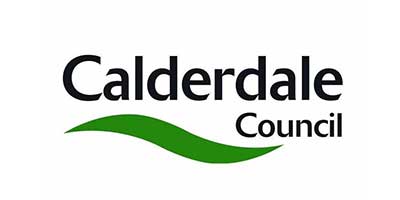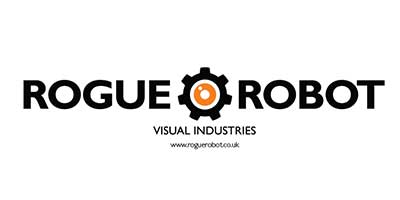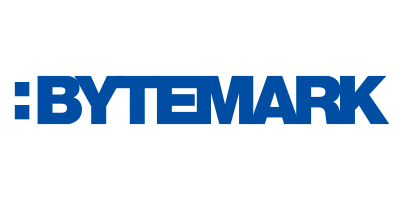
Restart Party
A Restart Party is a community event where you can learn how to fix all kinds of small electrical and electronic devices, starting with troubleshooting, finding spare parts if necessary and more. Slow laptops, broken printers, smartphones, coffee grinders, you name it! Bring it to the event and start taking back control of your gadgets and never feel victim to obsolescence again.
Participants are paired with a repair coach on a first come, first served basis. While you wait for your turn, feel free to join and learn from other repairs taking place. The workshop will run until 3pm, but try to arrive before 2pm to ensure we can help you. This is not a free repair shop, it’s a pop-up community event, so come prepared to get involved in taking apart your malfunctioning device and learning what went wrong, supported by one of the Restart coaches.
Please bring devices charged and don't forget their power leads/adapters: at times that's where the fault is! Please back up any personal data on your gadget, as we can't do this at the event. Do not expect us to have spare parts or replacement mobile screens. We'll have repair tools and basic consumables, but if while troubleshooting we find out that you need a spare part, we'll give you advice on how to procure it and if possible show you how to replace it yourself

Workshop: Simplifying programming using Flowcode
Dr Paul Newill
Find out about how you can simplify programming using Flowcode – the graphical programming software used throughout education and industry worldwide. Find out about how our solutions including a robotics course compatible with Raspberry Pi are bringing together those with little programming experience and professionals alike.
The workshop will be run by Dr Paul Newill. An Applications Engineer at Matrix TSL based in Halifax. Paul has worked for the company for over 2 years. Since 1993, Matrix have developed a portfolio of award-winning products which have applications in Education, Industry and in the home. Matrix’s flagship product is Flowcode 6. One of the World’s most advanced graphical programming languages for microcontrollers which allows those with little experience to develop complex electronic systems. Flowcode is used extensively in both education and industry.

NFC Ring®
John McLear
The NFC Ring® can be used to unlock doors, mobile phones, transfer information and link people.
We're a team of hackers who believe traditional keys need to be a thing of the past, we also believe that the jewellery industry doesn't serve enough of a function considering the cost of raw materials and the dent it leaves on your pocket.
We built the first NFC Ring to interface with a digital door lock. It quickly became obvious that the same technology could be used to unlock mobile phones and share information
The initial ring was designed by McLear Ltd's founder, John McLear who received funding from Matt Mullenweg (the founder of wordpress) then launched the ring to the Kickstarter community who instantly took to the approach, design and implementation - snapping up over 10,000 rings within 30 days, putting the NFC Ring at the forefront of the wearable technology market.
John's general approach to projects is to open up as much as possible and allow as many people to leverage the technology so it is not stifled by a lack of competition and by ridiculous patent trolls.
John is also an open source advocate, founder of Primary Technology and theEtherpad Foundation, curry lover and tea drinker.

Hand-engineered functional sculpture
Blott Works
BLOTT WORKS is a Todmorden-based designer/maker. Dan Morrison will be discussing the making of their hand-engineered functional sculpture. He will be bringing some industrial bird lamps, a clock and a mechanical sound sculpture.
Blott Works a small design studio, based in Todmorden, producing limited-edition hand-engineered functional sculpture. Founded by Dan Morrison in 2012, it was set up to fuse together his two great passions - art and engineering.
The work is influenced by a love of characterful mechanical movement, by the sumptuous curves of custom cars and bikes, by the beauty of raw industrial materials, and by the functional charm of simple machine components.
Wherever possible parts and components are "over-engineered" to give an air of indestructible vulnerability and ensure they will last for generations. They are made out of the sorts of materials that have strong heritage in both practical and decorative settings such as industrial metals, concrete and hard woods.
The collection of work currently available consists of a family of desk and table lamps, some clocks and a large floor-standing lamp. All have been designed and made by Dan or by his design collaborator Andy Plant, or a combination of the two of them.

Fancy yourself as a live broadcast mixer? Come and have a go at mixing an (almost) live Premiership football match on one of Calrec's award-winning consoles!
Kevin Emmott - Calrec Audio
At Wuthering Bytes Calrec will have a Summa console set up in the same configuration that Sky use for their live Premiership coverage. Fancy yourself as a live broadcast mixer? Come and have a go at mixing an (almost) live Premiership football match on one of Calrec's award-winning consoles!
Calrec Audio is a Hebden Bridge-based manufacturer of live audio equipment exclusively for the broadcast industry. The company has a global customer base which includes some of the world's most successful broadcasters, such as Sky, the BBC, NBC, ABC, CBS, Al Jazeera and the Munhwa Broadcasting Corporation, and celebrated its 50th anniversary last year.
Kevin Emmott joined Calrec Audio in 2000 and is Calrec's Marketing Manager and fork lift truck driver. He joined Calrec after a largely unsuccessful five year stint as a football reporter. Despite this background in the sport he is rubbish at mixing football, and is also being beaten by both his children in the Fantasy Football League. He has never regretted changing careers.

Robotic Drawing
Guy Lymer
Wheeled robotic drawing machines will show 2 alternative approaches to image making.
- Abstract images are created by a machine drawing various types of line, and exploiting a distance sensor to operate within a defined perimeter.
- Figures are drawn on paper by a ‘drawbot’, whose movements are controlled very precisely. The image is generated by re-interpreting an original hand-rendered figure sketch, and may be scaled to facilitate final drawing at almost any physical size.
Guy Lymer is an experimental artist, based at Artsmill in Hebden Bridge, and a founding director of Bridge Rectifier, Hebden's new hacker space venture at Hebble End. A recent graduate in Fine Art Practice, his work explores innovative 'interfaces' between artist and image - including computer motion sensors and robotic drawing machines.

Build a REV2 to zone your rooms and heat your home for less
Damon Hart-Davis
Build one of OpenTRV’s Arduino-like REV2 sensor boards and FHT8V radiator valve controllers with on-board radio module.
First person to successfully build their REV2 gets it for free!
What you need to bring:
- £25+VAT for the REV2 kit
- A soldering iron, solder, and maybe a magnifying glass or loupe to fit the TMP112 (DS18B20s may be available for those with shaky hands).
- Arduino IDE and GitHub access will help!
Damon Hart-Davis is lead on the OpenTRV open source project created following his 2012 presentation to DECC's smart heating workshop. He has freelanced in technology for over 30 years.

Demos: Open source graphics software
Matt Howarth
Matt Howarth has been working in the TV industry for the last twenty five years, supplying high end animations, graphics and special effects to broadcasters and productions companies worldwide.
He will be demonstrating some free and open source (though they aren't all open source) graphics packages. Matt will show how you can achieve professional, broadcast, cinematic and commercial game quality cgi, graphics and games with free software

Arduino workshops with IOU
IOU Theatre
IOU’s field team, headed up by resident Arduino-phile Penny Cunningham, will be on hand to discuss your digital projects and cast an exacting eye over your schematics. Squashing your bugs and shooting your troubles, the team will attempt to point you in the right direction and guide you safely towards your next level. Basic tools and components can be provided, however please bring your own IT.
Penny Cunningham is IOU’s multi-faceted all-rounder; an experienced dramatist and performer, with keen administrative skills, managerial sensibilities and technical chops to boot. Penny is the developer and head deliverer of IOUs micro-electronics workshop programme. A regular contributor with the Strange Twig Theatre Company, Penny is also an accomplished freelance Lighting Designer.
What you need to bring:
- Bring a laptop

3D Scanning workshop with Ard Technology
Dean Punchard
Through out the day I'll be scanning people, turning them into digital, 3D models using tech similar to an Xbox Kinect. Folks will then be able to download their digital self after the event from www.arddigital.co.uk. I will also be 3D printing objects on a 3D printer, and explaining any questions people might have regarding the work.
Dean Punchard runs Ard Digital, which specialises in creating computer generated imagery, animation and interactive apps. Dean's background is in art and design, but also has a fasination with new technology, hence the experimentation, he likes to play and explore things such as 3D scanning and printing.

3D Printing have a go workshop
Mark Gilbert
Have a go at 3D Printing — full details coming soon.
Mark Gilbert is a Product Designer / Maker initially working as a design engineer he set up his design studio in 2008 with his wife Angela developing products through experimentations in digital craft. Over the last 10 years Mark has also worked closely with the Bolton Science and Technology Centre as the "Designer in Residence" where he has developed workshops around the centre's 3D printing and CAD facilities.
Gilbert13 is a product design studio based in Bolton, designing, manufacturing and bringing to market a range of our own products as well as providing a consultancy service developing designs for businesses, museums, inventors and institutions. Interested in the combination of hand crafted techniques with various digital manufacturing processes such as lasercutting and 3D printing, they have moved from using 3D printing as a purely prototyping tool to producing sculptural finished products with moving parts such as the “Fable” Clock.

Powering Down - a co-operative, open approach to energy efficiency and smart grids.
Jonathan Atkinson & Matt Fawcett
Reducing the energy we use in our homes is the most effective way of lowering carbon emissions and reduces our reliance on dirty technologies such as coal and gas. But to date, Government policy and the Big Six energy providers have failed to deliver effective and affordable routes to household energy efficiency improvements.
In this absence, a co-produced approach, involving householders and small scale practitioners has the potential to fill the gap. Carbon Co-op, a community benefit society based in Greater Manchester, has delivered a series of innovative projects to establish new methods of community-led carbon saving, from whole house retrofit to simple energy assessments and now the use of smart meters and grids.
Throughout their development they have sought to use open source technologies and open methods of development, collaborating closely with partners OpenEnergyMonitor
Jonathan co-founded Carbon Co-op, collaborating with technical experts URBED on the project that became Carbon Co-op, testing the idea that reductions in household energy usage could be brought about quicker and with greater social benefit through collaboration and co-operation.
Matt Fawcett worked on community engagement for Carbon Co-op - developing the various community workshop programmes and producing written materials such as the Carbon Coop Manual and the little red book. More recently he has been involved in the open source monitoring and home assessment side as well as contributing to the new smart grids project.


